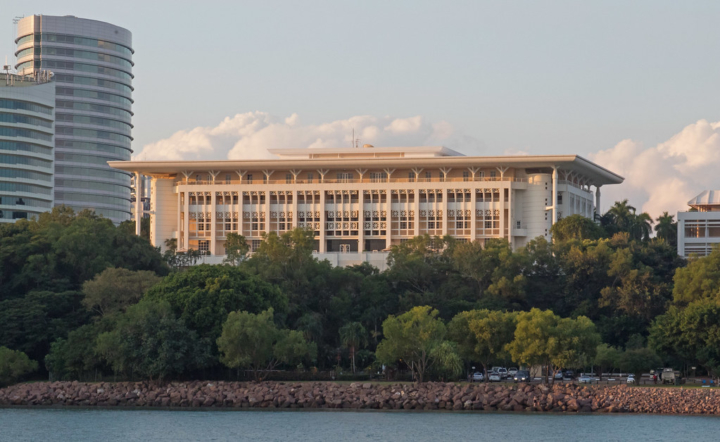Inquiry into the Australian Human Rights Commission Amendment (Costs Protection) Bill 2023
- This is a submission by Freedom for Faith to the Senate Legal and Constitutional Affairs Committee inquiry into the Australian Human Rights Commission Amendment (Costs Protection) Bill 2023 (“the Bill”) [Provisions].
- The Bill if enacted would amend the Australian Human Rights Commission Act 1986 (Cth) by changing the regime dealing with the awarding of costs after concluded discrimination litigation in the federal courts. This is the legislation under which those who complain of discrimination under federal laws can apply for a legal remedy.
- A new s 46PSA would replace the current section and would introduce a regime which is highly “applicant friendly”. In any adversarial litigation, of course, where one party is successful and the other is not, a court in the Anglo-Australian system will need to consider an award of the costs of litigation against the unsuccessful party. Under new s 46PSA the conditions applying to the applicant (someone who makes a complaint of discrimination and seeks a remedy) and the respondent (someone who has been accused of unlawful discrimination) will now be quite different, as illustrated in the table below.
When costs may be awarded under new s 46PSA
Costs against the respondent Costs against the applicant
(2) “…if the applicant is successful in proceedings on one or more grounds, the court must order each respondent against whom the applicant is successful to pay the applicant’s costs” (5) “…the applicant must not be ordered by the court to pay costs incurred by another party to the proceedings”
(4) Exception: “If the court is satisfied that the applicant’s unreasonable act or omission caused the applicant to incur costs, the court is not required to order the respondent to pay the costs incurred as a result of that act or omission.” (6) Exception: “The applicant may be ordered to pay the costs if:
(a) the court is satisfied that the applicant instituted the proceedings vexatiously or without reasonable cause; or
(b) the court is satisfied that the applicant’s unreasonable act or omission caused the other party to incur the costs; or
(c) all of the following apply:
(i) the other party is a respondent who was successful in the proceedings;
(ii) the respondent does not have a significant power advantage over the applicant;
(iii) the respondent does not have significant financial or other resources relative to the applicant.” - Through it is promoted as an ‘equal access’ model, what is proposed is an asymmetric model that is anything but equal. The granting of costs is heavily weighted to the claimant, and the respondent will almost never be awarded costs.
- We are concerned that this model will encourage complainants to advance claims on multiple grounds, even when these additional grounds have little to no chance of success. This is because the respondent is required to pay all the applicant’s costs even if only one ground is successful.
- We are also concerned that it will encourage unrepresented litigants in the most speculative cases, because they will have no legal costs of their own to deter them, and never have to face the prospect of costs being awarded against them, except if ‘the court is satisfied that the applicant’s unreasonable act or omission caused the applicant to incur costs’, and even then they will only be liable for the specific ‘costs incurred as a result of that act or omission.’
- The predictable outcome of this Bill will be significantly increased legal costs for respondents in defending dubious and spurious claims, from an increasing number of unrepresented complainants, which will cascade into increase insurance costs.
- The background to the Bill is well described in Bills Digest No. 33, 2023–24 of 27 November 2023, as well as in Submission No 4 from Adventist Schools Australia, the Australian Association of Christian Schools, and Christian Schools Australia (the “Christian Schools submission”), available on the inquiry website. We will not repeat this material, but note the following important facts from that history:
• While the amendments made by the Bill have been presented as a response to the earlier Respect@Work Report dealing with sexual harassment, the proposals in the Bill go well beyond the limited amendment suggested in recommendation 25 of that Report, which was to apply the costs regime currently applicable under section 570 of the Fair Work Act 2009 (Cth). That regime is referred to in the Bills Digest report as a “soft costs neutrality model” , and while it does favour applicants it leaves more discretion to the court in a particular case. The Bill’s proposed ‘equal access’ model was considered and rejected by the report of the Senate Legal and Constitutional Affairs Committee’s report on Anti-Discrimination and Human Rights Legislation Amendment (Respect at Work) Bill 2022, which recommended a cost-neutral approach instead. - In addition, the Respect@Work report recommendation only dealt with cases involving allegations of sexual harassment, whereas the coverage of the Bill extends to allegations of sex discrimination (not the same thing as the separate ground of harassment), and discrimination on all grounds available under Commonwealth law (which will include a number of grounds covered by the Sex Discrimination Act 1984 (Cth) (“SDA”), as well as discrimination on the basis of age, disability and race, and presumably any future additional grounds.)We agree with the criticisms of the Bill made by the Christian Schools submission that
The unbalanced nature of the proposals is an invitation for activist and punitive litigation, with low prospects of success but having the aim merely to generate media attention and create inconvenience…
Although the focus of the Christian Schools submission was the impact on the education section, the same religious freedom concerns arise for religious organisations and people of faith generally. - This is not a merely speculative possibility. We have already seen discrimination litigation generated for activist and political purposes which has created immense expenditure of time and effort and money, which has then either been dropped without a resolution, or been dismissed with no costs remedy against the applicant.
- An example of the first situation is the litigation against Roman Catholic Archbishop Julian Porteous, during the debates on same sex marriage. The Archbishop had circulated advice to parents of students at Roman Catholic schools about the church view that marriage was a sacrament between a man and a woman. He was sued under Tasmanian law for alleged “hate speech” by an activist who was not otherwise involved with the Roman Catholic school system. The case was finally dropped some months later after a lot of time and money spent on the proceedings. No costs were ordered against the applicant.
- An example of the second situation can be seen in the long-running series of claims that have been made by one litigant in NSW, Mr Gary Burns, against a number of persons who have made comments about homosexuality, many of them from a religious perspective. To give a snapshot from a few years ago about this litigation, we may refer to the comments of Harrison J in the NSW Supreme Court in one of the cases, Gaynor v Local Court of NSW & Ors [2019] NSWSC 805:
[6] Since May 2014, Mr Burns has made 36 complaints to the President of the Anti-Discrimination Board pursuant to the Anti-Discrimination Act 1977 against Mr Gaynor. Of these complaints, 23 have been referred by the President to the New South Wales Civil and Administrative Tribunal pursuant to s 93C of that Act… - While these cases were run under State law, it seems clear that the amendment to be made by the Bill will encourage such litigation at the Federal level over similar issues. Indeed, the government’s Explanatory Memorandum to the Bill virtually invites such action, by noting that the amendment will apply to “representative” actions as well as applications by individuals, and then stating:
This may also encourage public interest litigation in unlawful discrimination matters. - It is of course true that the courts should be open to all members of the community to seek justice. It is reasonable that those who have been the victim of unlawful discrimination should be able to seek a remedy. But there is a very real danger that in some cases the legal system can be unfairly misused to harass others. The award of costs is a mechanism which provides some restraint on unfair invocation of court processes.
- In the area of religious freedom, current discrimination law provides some protection to religious organisations such as churches, schools, and hospitals to operate in accordance with their faith commitments. Balancing clauses are an integral part of the SDA (in ss 37 and 38), for example, where there may be a clash between long-standing religious views on sex and gender, and provisions making decision-making on those grounds otherwise unlawful. But if the Bill were enacted, the door would be open to frivolous and politically motivated actions attacking these institutions, where an applicant who lost would be able to defend any claim to pay costs under new s 46PSA(6)(c)(iii), pointing to the inevitable disparity in financial resources between an individual and an organised body.
- It seems also worth noting that, should a federal law forbidding religious discrimination be enacted (as has been foreshadowed by the government), the new costs provisions might be misused by religious believers making frivolous claims against secular bodies.
- Freedom for Faith opposes the Bill for the reasons noted here, on the basis that it will undermine important checks and balances necessary to discourage low-value litigation and waste valuable court time and resources.
- We thank the committee for the opportunity to submit, and look forward to further discussion on these important issues.
Rev Mark Wilson
National Ministries Director
Australian Baptist Ministries
Rev Mark Edwards OAM
Australian Christian Churches
The Right Reverend Dr Michael Stead
Chair, Religious Freedom Reference Group
Anglican Church Diocese of Sydney
Jeoffrey Falls
General Manager
Presbyterian Church of Australia in NSW
Michael Worker
Director Public Affairs & Religious Liberty
Seventh-day Adventist Church
Mike Southon
Executive Director
Freedom for Faith



